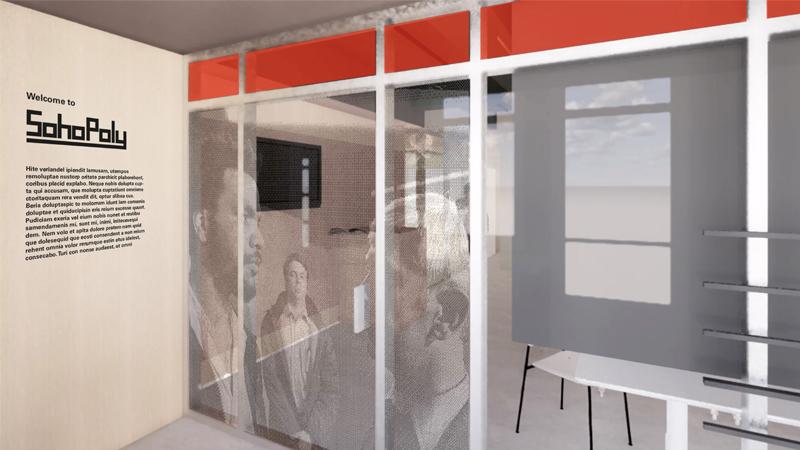The Soho Poly at the University of Westminster has been awarded £88,300 from the National Lottery Heritage Fund to preserve the history of this nationally important and radical theatre.

The project will involve working with a diverse range of young people under-represented in heritage engagement activities to recover, preserve and disseminate the remarkable heritage of the Soho Poly, which was one of the most important alternative theatre venues of the post-war period.
Thirty young people, undergraduates from the University of Westminster, will be trained by the theatre to reproduce oral histories from key individuals associated with the Soho Poly, who are representative of BAME and LGBTQ+ communities. This training will allow the students to develop their skills and learn to communicate wider issues around Equality, Diversity and Inclusion.
Oral histories are the collection and study of historical information about individuals, families, important events or everyday life using audiotapes, videotapes or transcriptions of interviews. As part of this project, the students will interview those key figures about their past experiences. The recordings will be accessible for free.
These students will also have the valuable opportunity of delivering their own workshops to 180 older members of the charity Open Age, which will aim to combat isolation and promote creativity and wellbeing.
The Soho Poly will also collaborate with 90 sixth form students and their teachers at three different schools in London to create a ‘Radical Theatre Resources Pack’, which will be distributed to students in over 100 schools across the capital.
From 1972 to 1990, the Soho Poly was London’s most important alternative theatre venue. Located in the basement of the University of Westminster’s Riding House Street building, it was a radical pioneer of ‘lunchtime theatre’, dedicated to widening democratic access to the arts. It also gave voice to underrepresented writers, particularly women and members of the BAME and LGBTQ+ communities.
Timberlake Wertenbaker, Caryl Churchill, Hanif Kureishi, Simon Callow and Bob Hoskins were just some of the writers, actors and playwrights who developed their craft here. Many BBC producers from nearby Broadcasting House also commissioned works first showcased at the Soho Poly. Leaving its premises in 1990, the Soho Poly morphed into today’s Soho Theatre.
Dr Matthew Morrison and Professor Guy Osborn are the Soho Poly Co-Academic Leads from the University of Westminster. Dr Morrison said: “The support of the National Lottery Heritage Fund gives us an incredible opportunity to record the history of the Soho Poly, and radical theatre more widely. Their funding makes it possible to share the experience of older theatre makers with young people who can continue the fight for a more inclusive and diverse cultural landscape in the future.”
Jordan Scammell, Head of Development and Fundraising at the University of Westminster, added: “We are delighted to be partnering once again with the Heritage Fund to support our ambitions to bring back to life another venue of historical importance within our estate and to kick start our wider capital campaign. The Soho Poly will provide a venue in the heart of London’s West End for emerging talent to come and cut their teeth, in return for providing workshops, performances and mentoring for our students and local community. Supporting the recovery of the Arts and the wellbeing of our community in this way, as we emerge from the pandemic, will help to put Soho Poly firmly back on the map. We are incredibly grateful for the generous support of the Heritage Fund.”
The project will begin in September 2021 and run until October 2022.
To find out more about the project and our ambitions, and how you can support us, please email [email protected] or access our plans.



